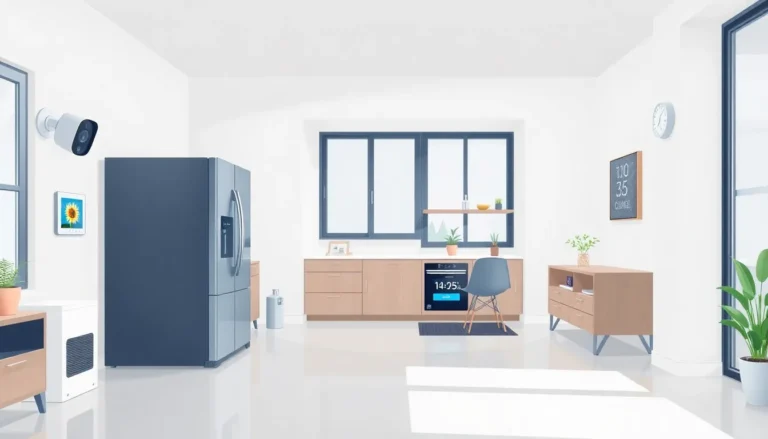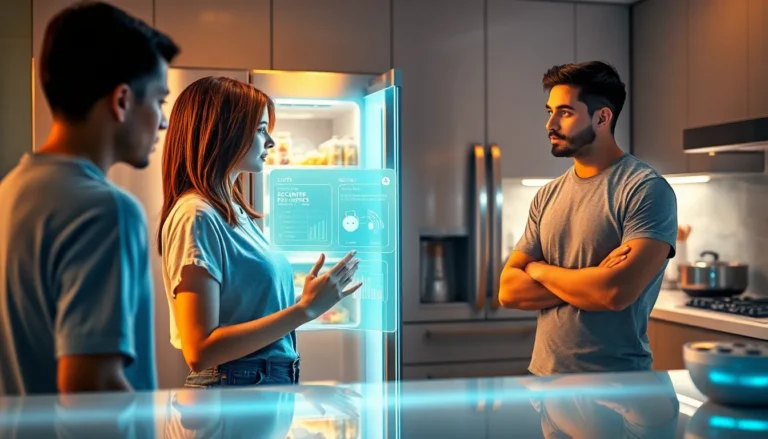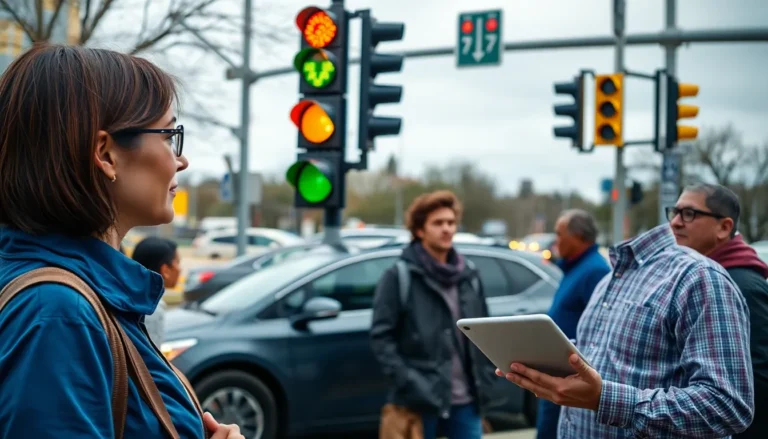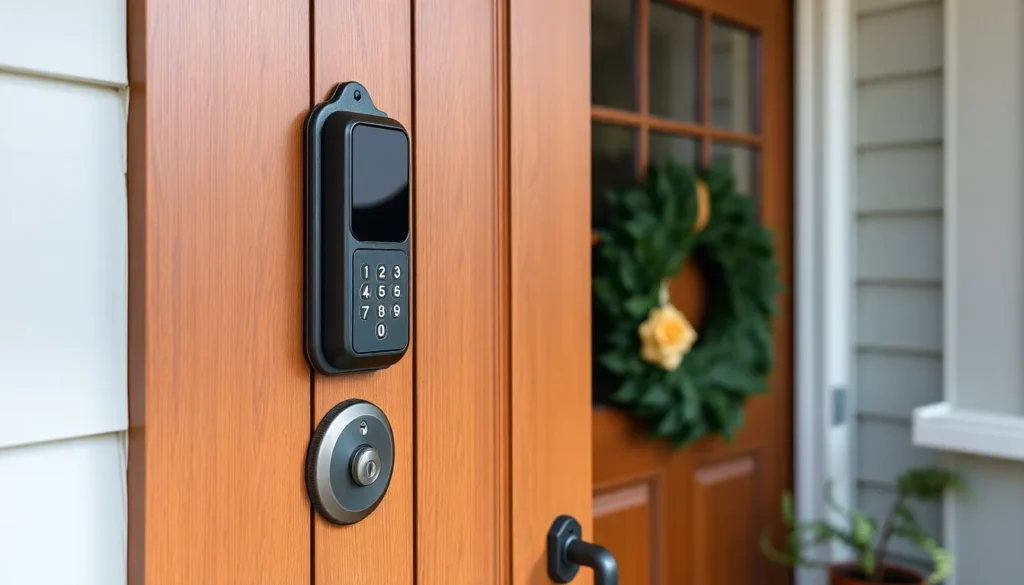Table of Contents
ToggleImagine a world where you never have to fumble for your keys again. Smart locks are here to make that dream a reality, blending convenience with cutting-edge technology. These nifty gadgets not only keep your home secure but also add a touch of modern flair to your front door.
Gone are the days of worrying about lost keys or locking yourself out. With smart locks, you can control access to your home right from your smartphone. Whether you’re letting in a friend or monitoring who’s coming and going, these locks offer peace of mind with a sprinkle of high-tech charm. So why stick to traditional locks when you can unlock a smarter way to secure your castle?
Overview of Smart Locks
Smart locks represent a significant advancement in home security technology. These devices allow homeowners to control access without traditional keys. Instead, users can unlock doors using smartphones, keypads, or biometric systems.
Various types of smart locks exist in the market. Some include deadbolt systems that integrate with existing hardware, while others offer standalone configurations. Many smart locks also feature remote access capabilities, enabling users to grant entry to guests from anywhere.
Functionality remains a critical aspect of smart locks. They typically connect to home Wi-Fi or Bluetooth networks, facilitating user alerts and activity logs. Security features such as two-factor authentication and encryption ensure data protection.
Flexibility in access methods is a key advantage. Homeowners can issue temporary codes for visitors or service personnel, reducing the need for physical keys. Multiple users can receive unique access credentials, enhancing convenience for families.
Integration with smart home systems enhances usability. Many smart locks seamlessly work with platforms like Amazon Alexa, Google Assistant, or Apple HomeKit. Such integration allows users to manage security alongside other home automation features.
Battery life also plays a significant role in the functionality of smart locks. Most models utilize long-lasting batteries, often lasting several months before needing replacement. Many devices also provide low-battery alerts, ensuring users always maintain access.
With modern aesthetics, smart locks fit well with contemporary home designs. Sleek designs and finishes are available to complement various architectural styles. Homeowners can choose colors and materials that enhance their entrances while securing their properties effectively.
Benefits of Smart Locks
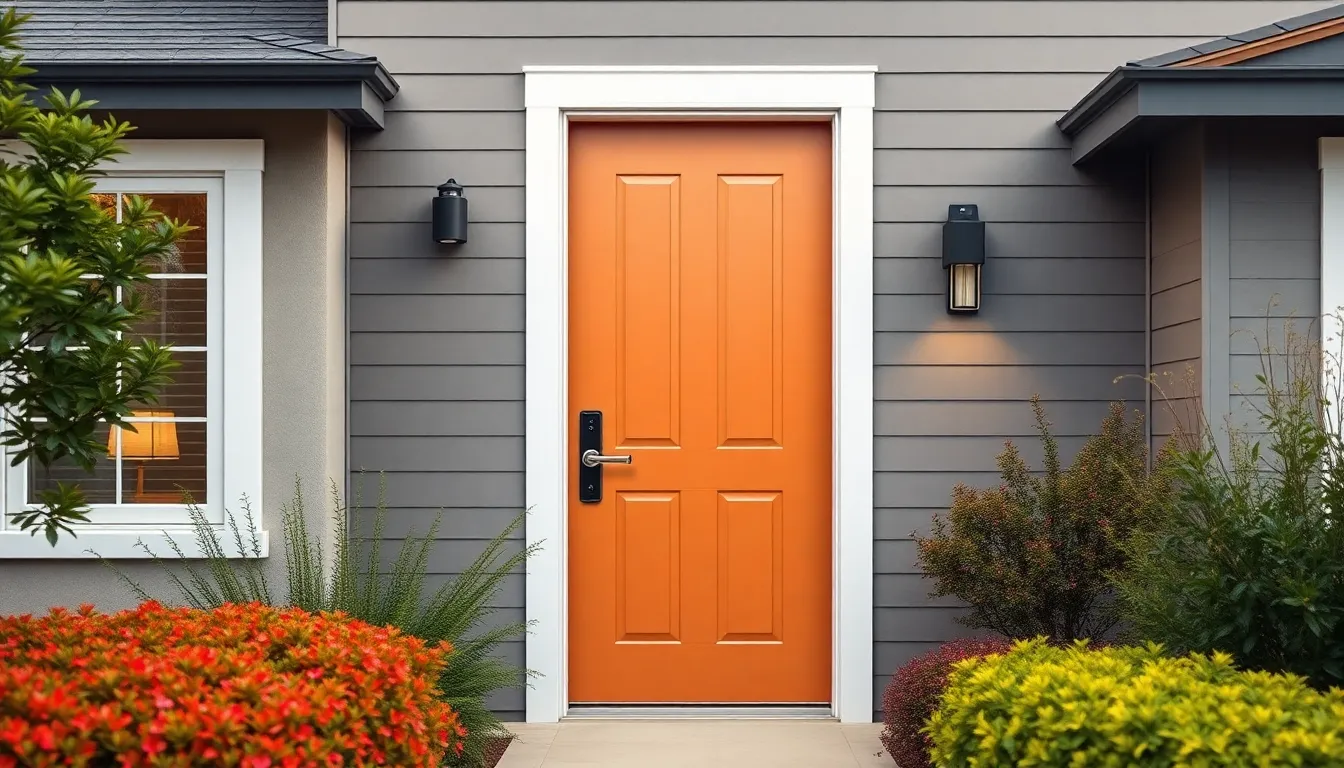
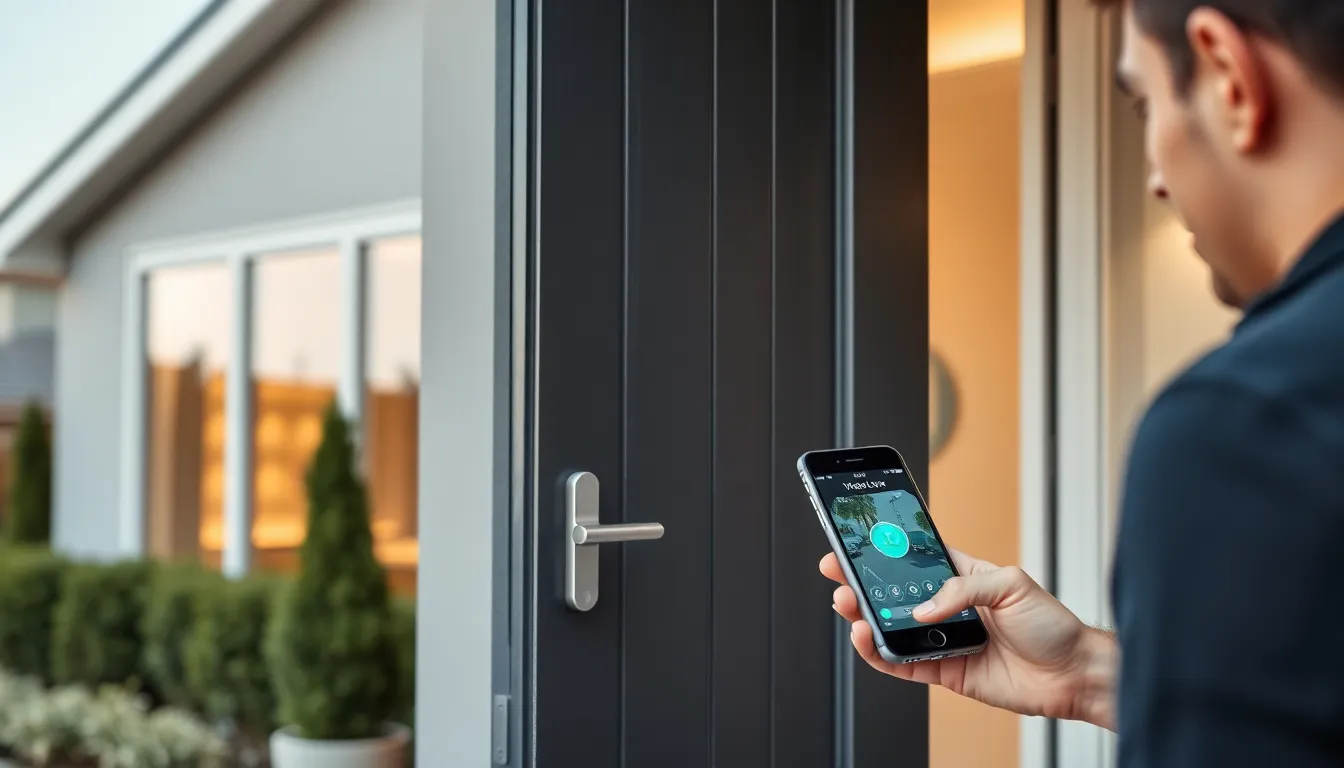
Smart locks offer several advantages that enhance home security and convenience. Understanding these benefits helps homeowners make informed decisions about their security systems.
Enhanced Security Features
Smart locks incorporate advanced security measures that traditional locks lack. Two-factor authentication provides an additional layer of protection, ensuring only authorized users gain access. Encryption safeguards data transfer, protecting against unauthorized entry. Alerts notify homeowners of any suspicious activity, allowing for immediate action if needed. Activity logs track who enters and exits, offering a clear overview of door usage. Many smart locks also feature automatic locking mechanisms, reducing the risk of human error. Enhanced security features provide peace of mind, particularly for families with young children or elderly relatives.
Convenience and Accessibility
Smart locks simplify access with various methods for entry. Users can unlock doors remotely via smartphones, eliminating the need for physical keys. Temporary codes can be issued for guests or service personnel, making it easy to grant access without being present. Voice command compatibility with smart home systems like Amazon Alexa or Google Assistant adds another layer of convenience. Notifications keep homeowners informed about entry and exit, enhancing situational awareness. Long-lasting battery life ensures continuous operation, while low-battery alerts allow for timely replacements. Overall, smart locks enhance convenience, making home access seamless and manageable.
Types of Smart Locks
Smart locks come in various types, each offering unique features and benefits tailored to homeowners’ needs.
Keyless Entry Systems
Keyless entry systems eliminate traditional keys, allowing users to unlock doors through alternative methods. Many feature keypads where users enter a code, granting easy access without the risk of losing keys. Additionally, biometric options read fingerprints for an even more secure entrance. Owners can create temporary access codes for guests, enhancing convenience. This system supports families with frequent visitors by offering a seamless entry experience.
Bluetooth and Wi-Fi Enabled Locks
Bluetooth and Wi-Fi enabled locks connect to smartphones, granting remote access from anywhere. Users can manage their locks through a dedicated app, providing real-time alerts about activity. Bluetooth locks typically operate within a limited range, while Wi-Fi locks connect to the home network, allowing users to control access from any distance. Integration with smart home systems enhances usability, enabling voice commands for locking and unlocking. These features streamline home security, making it easier for homeowners to manage access.
Installation and Setup
Installing smart locks can be a straightforward process, either by oneself or through a professional service. Each method offers distinct advantages depending on individual expertise and preferences.
DIY vs Professional Installation
Opting for a DIY installation often saves money and can be completed in a few simple steps. Many smart locks come with clear instructions and all necessary tools. However, some may encounter challenges, particularly if existing door hardware is outdated or incompatible. Professional installation guarantees a proper fit and functionality, ensuring security features operate as intended. Professionals can handle complex installations and troubleshoot potential issues quickly. Evaluating each option relies on comfort with technology and expertise, allowing homeowners to choose the best path for their needs.
Mobile App Integration
Mobile app integration is a critical element of smart locks, enabling remote management and monitoring. Most models connect seamlessly with dedicated smartphone applications. Users access real-time alerts, view activity logs, and manage permissions through their devices. Customization options also allow for temporary access codes or schedules for guests. Compatibility with smart home ecosystems enhances convenience, providing voice command capabilities through platforms like Amazon Alexa or Google Assistant. Successful app integration ensures increased control over home security, making locking and unlocking doors easy from virtually anywhere.
Considerations When Choosing Smart Locks
Selecting the right smart lock involves various factors that influence functionality and compatibility.
Compatibility with Home Systems
Compatibility with existing home systems plays a vital role when choosing a smart lock. Many models integrate seamlessly with smart home assistants like Amazon Alexa and Google Assistant. Some smart locks also connect with security systems, ensuring synchronized functionality. Features such as remote access and voice control enhance ease of use. Checking whether a smart lock supports specific home automation platforms is crucial. Not all locks work with every system, which could limit the user experience. Ensuring compatibility can maximize convenience and efficiency for homeowners.
Battery Life and Maintenance
Battery life and maintenance are essential considerations for smart locks. Most smart locks run on batteries, highlighting the need for longevity. Many models offer low-battery alerts, prompting timely replacements. Choosing locks with long-lasting batteries minimizes maintenance efforts significantly. Regular maintenance ensures optimal lock performance, including firmware updates that enhance security features. Users should always check battery status periodically to prevent unexpected failures. Overall, prioritizing battery longevity can lead to a hassle-free experience.

